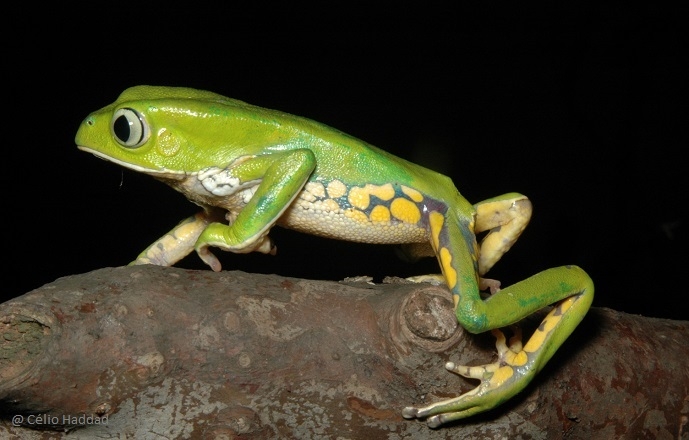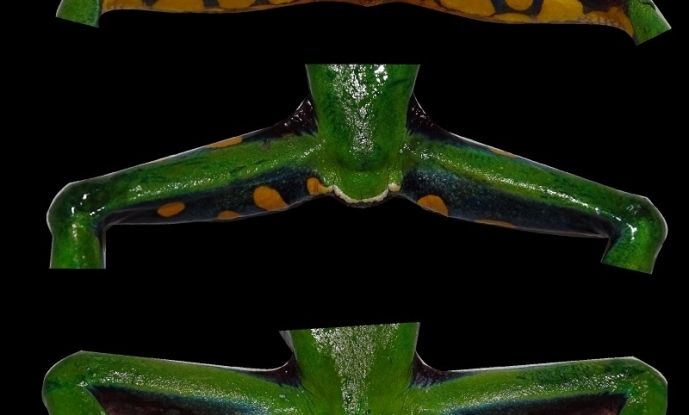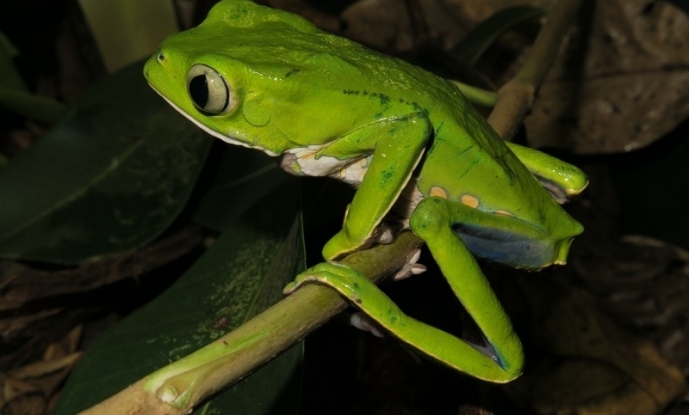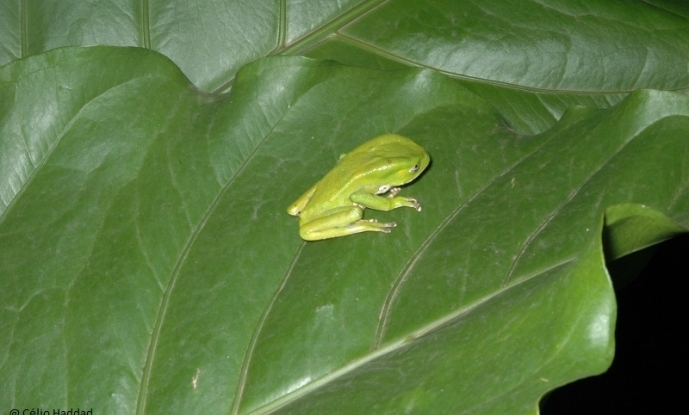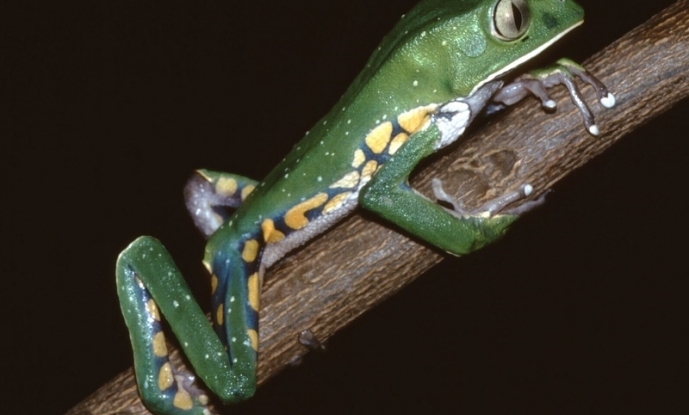Colours hidden in the forest: evolutionary genomics of colour patterns in Neotropical frogs
The study of the evolutionary processes that originate phenotypic diversity is an important endeavour in biology because it can offer insights into the process of adaptation in natural populations. Colouration patterns are remarkable traits for studying the mutational mechanisms underlying phenotypic diversity and how these affect patterns of evolutionary change. Among vertebrates, amphibians are one of the most interesting groups, exhibiting a vast variation in colouration, whose function has been mainly associated with thermoregulation, UV protection, conspecific communication, and predator avoidance. Despite significant advances have been made on this topic in both invertebrates and vertebrates, the genetic basis of colouration in amphibians is still surprisingly unknown.
The South American leaf-frogs of the Phyllomedusa burmeisteri group is a compelling case to study the evolution of colour pattern diversity in amphibians. First, they present striking variation in the patterns of bright colours at the hidden surfaces of thighs. Second, colour morphs variants coexist in some populations, offering, thus a unique opportunity for genetic mapping studies. Finally, these species meet in a well-defined contact zone, making this system an excellent model to understand the impact of colour polymorphism in the dynamics of speciation, and how selection shapes both phenotypic and genetic variation.
This project seeks to investigate the Genetic basis and evolutionary processes underlying colour variation in amphibians. To this end, we will:
1) perform a genome-wide association analysis using high-throughput DNA sequencing techniques, including exome capture and RNA sequencing;
2) study gene expression of associated genes in several developmental stages; and
3) investigate patterns of allele frequency change across the contact zone for causative loci and randomly chosen markers.
This proposal will be conducted by an International multidisciplinary research team (Brazil and Portugal), that have long-term experience in eco-evolutionary studies. With this project we have the rare opportunity to understand the mechanisms that shape phenotypic variation within populations and how these affect patterns of evolutionary change.
Team
Principal Investigator
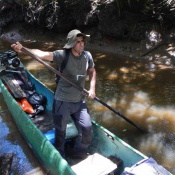
Fernando Jorge Guimarães Sequeira
Position: Auxiliary Researcher
Group:
WILDEcol Researchers

Miguel Jorge Pinto Carneiro
Position: Principal Researcher
Group:
EVOLGEN
Other members
Célio Fernando Batista Haddad (UNESP, Brasil), Mariana Lyra (UNESP, Brasil), Délio Baeta Neves (CIBIO and UNESP, Brasil)
Célio Fernando Batista Haddad (UNESP, Brasil), Mariana Lyra (UNESP, Brasil), Délio Baeta Neves (CIBIO and UNESP, Brasil)
State
Ongoing
Proponent Institution
Associação BIOPOLIS (CIBIO-InBIO)
Funded by
Fundação para a Ciência e a Tecnologia (FCT)
Dates
2018 (Duration: 3 years)
Reference
PTDC/BIA-EVL/28621/2017
